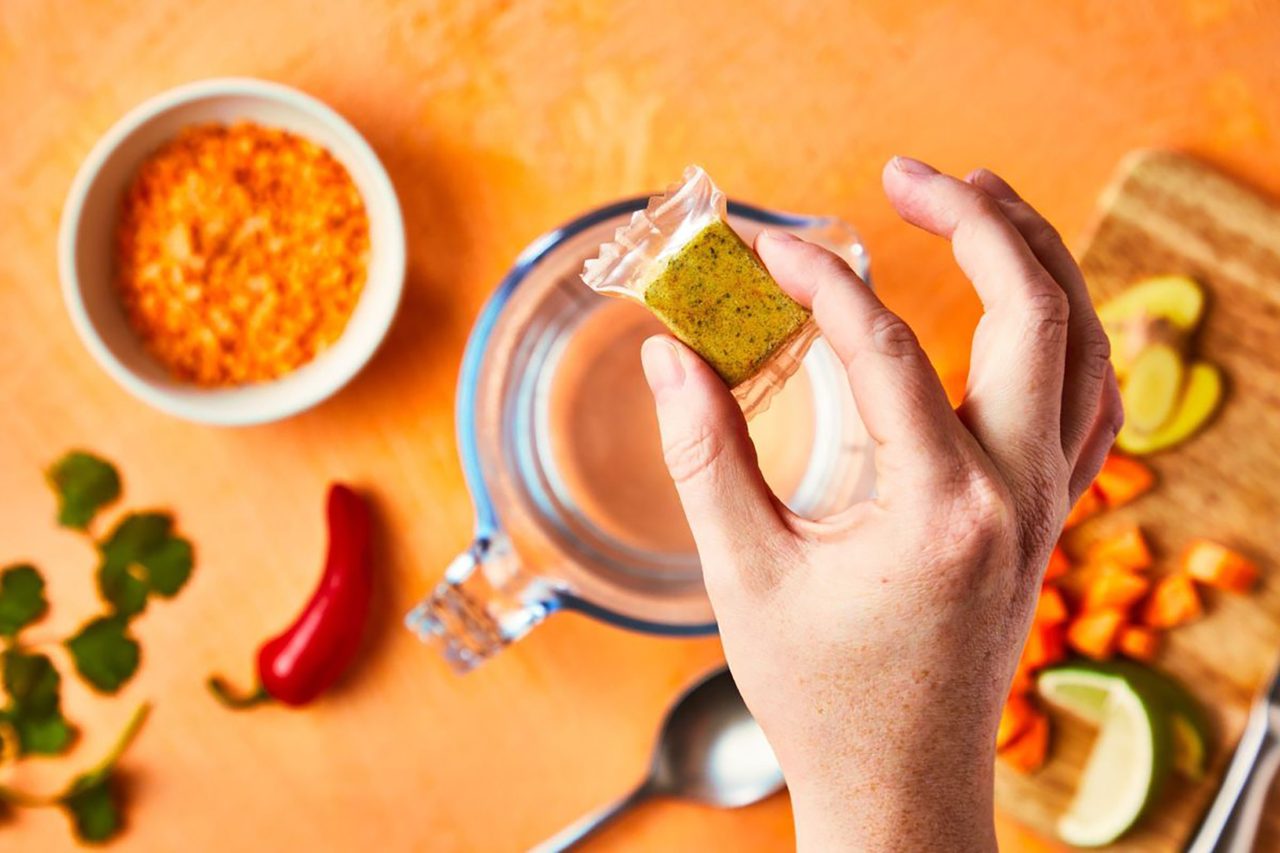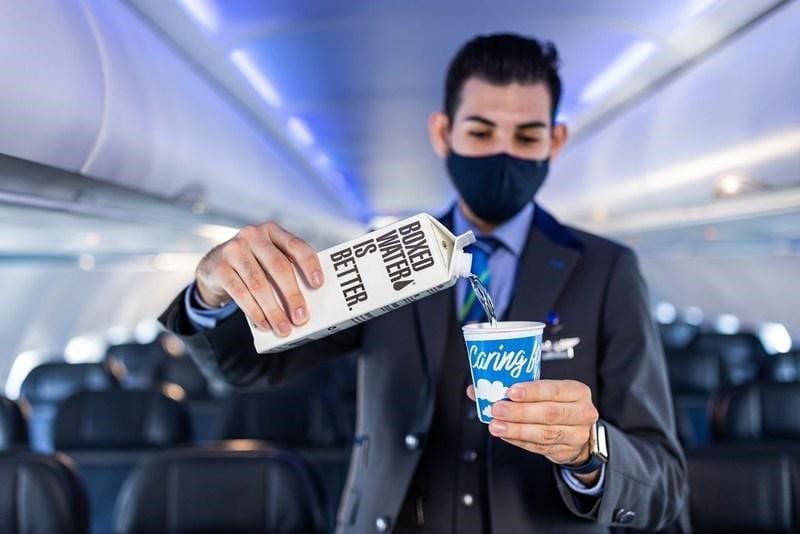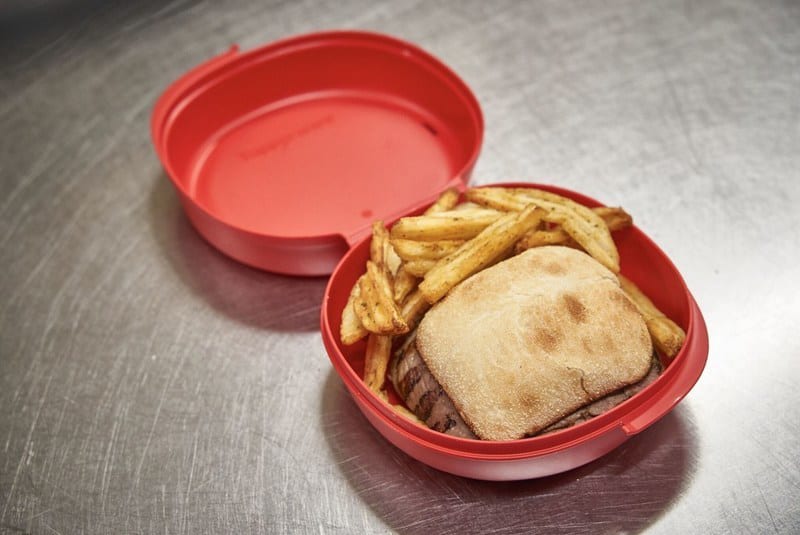This edible cube wrapper is made from pea protein and was created through a collaboration between Gousto and Xampla. Photo courtesy of Gousto

GOUSTO, a U.K.-based subscription meal kit company, is trialing a “world-first” edible packaging solution to help improve the environmental credentials in its recipe boxes. Following 15 years of research and one year of development, the stock cube wrapper is made from pea protein. Created in partnership with Xampla, the solution will be included in Gousto recipe boxes.
The edible packaging is made by engineering and drying a pea protein material into sheets that are said to have the same benefits as plastic, being able to preserve the food’s flavor and shelf life, but without any of the packaging waste. The material is also vegan and gluten-free.
The vegetable stock cube in Gousto’s Indian Spiced Carrot & Lentil Soup recipe is used by dissolving the stock cube, and its packaging, in hot water.
Last year, Gousto cut plastic by 50% in the company’s boxes by switching to more cardboard packaging and launching the Eco Chill Box, an insulator made of recycled cardboard that keeps ingredients fresh. Another 17 tons of plastic could be saved by Gousto annually if the new edible stock cube packaging is rolled out in full.
Edible packaging for meal kits

Dow Packaging's latest initiative uses a multi-stage process to contribute to a circular economy for digitally printed pouches. Photo courtesy of Dow
Dow Packaging and Specialty Plastics, a business unit of Dow, and HP Indigo, Reifenhäuser, Cadel Deinking and Karlville, have debuted a first-of-its-kind pouch-to-pouch mechanical recycling concept.
It uses a multi-stage process to contribute to a circular economy for digitally printed pouches. Starting with a polyethylene (PE)-based barrier food pouch designed for recyclability, the project team has used mechanical recycling and de-inking to create a high-quality dishwasher MDO-PE pouch containing 30% recycled contents and being itself suitable for recycling.
The team is working on a digital product passport pilot to allow for recycling-relevant packaging properties to be recorded and to make the pouch identifiable for high-quality recycling within post-consumer waste management.
Delivering the high-quality PE-pouch has required several steps in a coordinated process with each team member applying their experience and capabilities collaboratively.
The companies also are working to add digital traceability to the pouches in line with the R-Cycle initiative, a cross-company initiative to develop an open and globally applicable traceability standard for sustainable plastic packaging.
Using special markings, usable packaging can then be identified in the recycling process and sorted into single-type fractions.
Dow and partners debut pouch-to-pouch recycling concept

Alaska Airlines uses fully recyclable cartoned water with plant-based cap. Photo courtesy of Boxed Water Is Better
Alaska became the first airline to offer guests water cartons inflight in early 2021, introducing the renewable packaged water alternative in First Class and on Alaska's Horizon Air-operated flights. The trial was a success with guests and employees, with surveyed fliers preferring the Better cartoned water over plastic bottled water.
Boxed Water is a fully recyclable box-shaped carton of water, sealed with a plant-based cap. Boxed Water's 100% pure water goes through a proprietary multi-step purification process, which includes reverse osmosis, carbon filtration, UV light and ozonation. The water is also pH neutral and free from additives.
Alaska Airlines’ inflight water service is getting a planet-friendly upgrade. The airline is trading plastic water bottles for Boxed Water Is Better brand's 92% plant-based cartons and swapping out plastic cups with recyclable paper cups for water service. This will save an estimated 1.8 million pounds of single-use plastics from flights over the next year.
Inflight water service is the most significant contributor of onboard plastic waste. The switch to more sustainable solutions will effectively remove 22 million plastic cups and 32 million plastic bottles per year from Alaska flights.
Boxed Water taking flight


